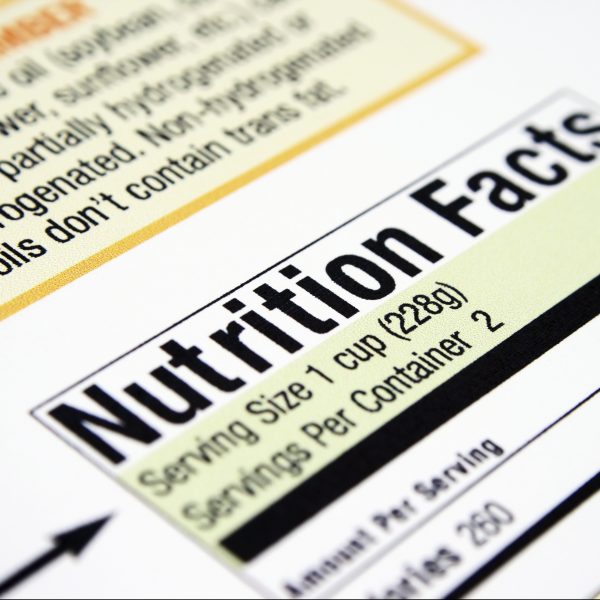One small step for fertility, one giant leap for the future of human health. The U.S. Food and Drug Administration (FDA) made a very good decision this year; to ban a health-harming ingredient from foods most American’s eat regularly – partially hydrogenated oils (PHOs).
A final ruling by the FDA on June 16th, 2015 now formally recognizes PHOs as no longer safe for use in human food. PHOs are the primary source of artificial trans fats in processed foods. Although you may not know it, many foods contain trans fats, such as partially hydrogenated vegetable oils, shortening, and margarine.
The FDA has set a timeline of three years for food manufacturers to comply to the new law and remove PHOs from any foods they currently use them in. By June 18th, 2018 all product inventory containing PHOs must be depleted or replaced under the new guidelines and their labels modified to reflect the new ingredient(s).
Why the Sudden Change?
What most American consumers probably don’t know is that since 2006, all food manufacturers have been required to include trans fat information on the Nutrition Facts panel of their products. Unfortunately, at that time the FDA had not deemed them as no longer meeting generally recognized as safe (GRAS) standards.
In 2013, the FDA made a tentative decision to remove PHOs from processed foods. From that time forward the ban on PHOs has been in limbo at the national level, that is until over 6000 contacts from health professionals, consumers, advocacy groups, and state/local governments urged them to have PHOs removed permanently.
Why Trans Fats are Harmful to Health and Fertility
Trans fats are considered the most dangerous type of fatty acids to health and have been linked to a variety of health issues, namely an increased risk for heart disease, stroke and type 2 diabetes. Trans fats also have no known health benefits. The reason they are harmful to overall health is because they raise bad cholesterol (LDL) and lower good cholesterol (HDL).
Female Fertility
A study in 2007, published in The American Journal of Clinical Nutrition identified an increased risk for infertility in women who consumed more trans fats compared to polyunsaturated and monounsaturated fats due to a disruption in ovulatory function. In fact, women who consumed more trans fats than monounsaturated fats had double the risk of ovulatory infertility.
Male Fertility
A small 2013 study (Human Reproduction) of the effects on consumption of trans fatty acids by young men showed these harmful fats may lower sperm count and semen quality. Researchers caution that more research is necessary to determine the role of trans fatty acid consumption in relation to sperm health, but that the results of this study are in line with previous research on trans fatty acid consumption and sperm count in rats.
How to Move Away from Artificial Trans Fats Now!
1. Eat a whole foods based diet. Choose a diet that is rich in whole foods, not processed foods, including:
- whole grains – brown rice, buckwheat, quinoa, oats, etc.
- a variety of fresh fruits and vegetables
- make foods with pure oils only – coconut, olive, avocado, butter from grass fed cows, etc.
- organic animal products – as close to their natural state as possible (avoid processed meat products)
- choose natural sources of good fats such as avocado, Alaskan salmon, raw nuts and seeds, raw nut and seed butters and oils (read the label first)
2. Read labels! Make sure the foods you are eating do not contain trans fats. The label must say 0 grams trans fats to adhere to the law. 0 grams trans fats means that less than .5 grams of trans fats are contained in the product.
3. Avoid fried foods. Fried foods such as french fries, fried chicken, pastries, fast-food hamburgers, etc. are all cooked with trans fats.
Closing Thoughts
This recent ruling by the FDA has been a long time coming and while it is good news, the law will take three years to allow food manufacturers to phase out and replace PHOs. This means right now is the best time for you to eliminate PHOs from your diet. Here’s to your health!
- Chavarro, J. E., Rich-Edwards, J. W., Rosner, B. A., & Willett, W. C. (2007). Dietary fatty acid intakes and the risk of ovulatory infertility. The American journal of clinical nutrition, 85(1), 231-237. Retrieved online from: http://ajcn.nutrition.org/content/85/1/231.short
- Venable LLP. (6/2015). FDA Makes Final Determination on Partially Hydrogenated Oils. Retrieved online from: https://www.venable.com/fda-makes-final-determination-on-partially-hydrogenated-oils-06-23-2015/
- Chavarro, J. E., Mínguez-Alarcón, L., Mendiola, J., Cutillas-Tolín, A., López-Espín, J. J., & Torres-Cantero, A. M. (2014). Trans fatty acid intake is inversely related to total sperm count in young healthy men. Human Reproduction, 29(3), 429-440. Retrieved online from: http://humrep.oxfordjournals.org/content/29/3/429.short
- American Heart Association. (8/4/2015). Trans Fats. Retrieved online from: http://www.heart.org/HEARTORG/GettingHealthy/NutritionCenter/HealthyEating/Trans-Fats_UCM_301120_Article.jsp





